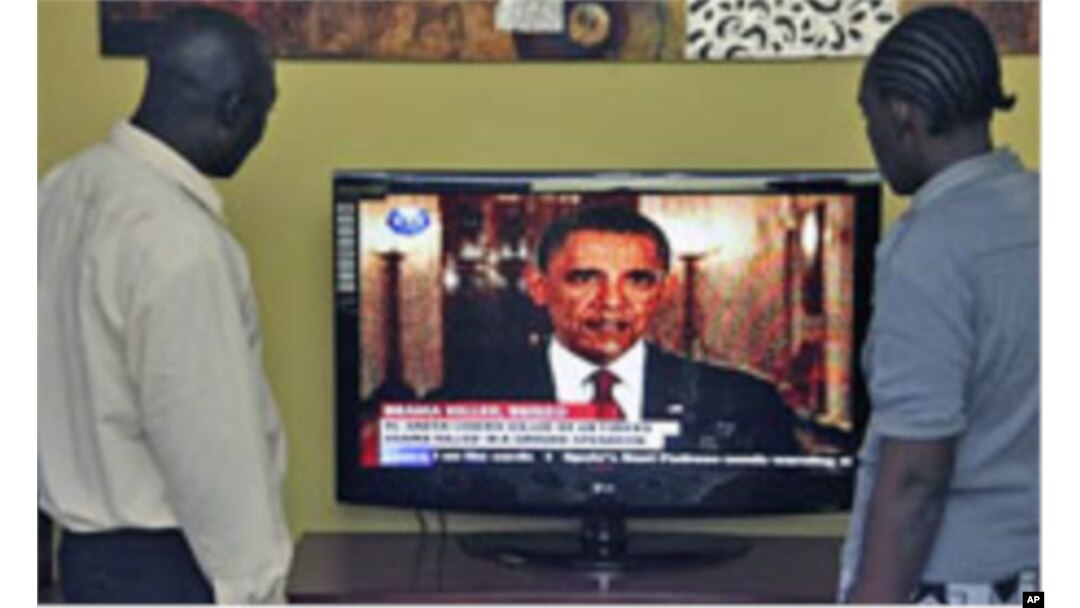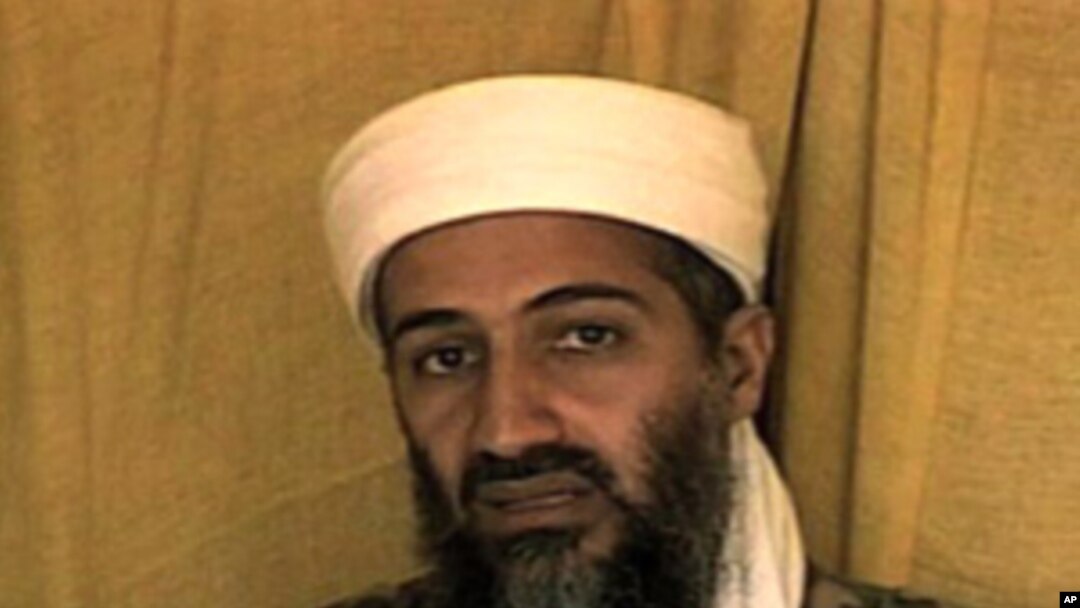In Nigeria, reaction to death of Osama bin Laden, who was killed Sunday by U.S. forces in Pakistan, was mixed. While some expressed support for the U.S. action, others warned it could lead to more violence.
Bin Laden’s death offers an opportunity for improved relations between the United States and the Muslim world, said Mallam Auwal Rafsanjani, executive director of the Civil Society Legislative Advocacy Center, based in the Nigerian capital, Abuja.
“We, the American government, and the international [community] would begin to dialogue with all aggrieved people and work out a more peaceful and responsible way in dealing with each other,” he said, “without necessarily promoting any violence or any act that will be tantamount to terrorism in the world.”

Kenyans in Nairobi watch President Obama announce the death of bin Laden.
Muslims should also reach out to the United States, he said.
“We also call on those other aggrieved Muslims who believe it’s only through the use of violence that they can address their problems to also re-think about their method of advancing their grudges.”
There was also reaction from Kenya. The killing of bin Laden could open another phase in the struggle against other terror groups, said Shaukat Abdulrazak, deputy vice chancellor of Egerton University in the capital, Nairobi.
“This is the beginning of other challenges [of potentially violent revenge attacks] that would follow as a result of the death of Osama bin Laden, so I think it would not probably be the end of everything; it’s probably the beginning of some challenges,” he said.
Observers say among the groups in sub-Saharan Africa inspired by al-Quaeda are the radical Islamic sect Boko Haram in northern Nigeria, al-Qaeda in the Magreb, and al-Shabab insurgents in Somalia.

Crowds celebrate outside the White House in Washington early Monday following President Obama's televised announcement.
On the other hand, political analyst Hussein Solomon, a professor of political science at the University of the Free State in Bloemfontein, South Africa, hopes bin Laden's death will lead some Islamists to think twice before committing violence.
"For some time Bin Laden and Dr. Ayman al-Zahiri, his number two, served as inspirational figures for al-Qaeda operations, " he said, "as opposed to actually having day-to-day command and control. So [his death] is actually quite positive.... to the extent it actually results in people saying ‘do we really want to reach this end?' For actual de-radicalization, it’s quite positive."
Solomon says the episode is likely to boost Obama's foreign policy credentials both in the U.S. and in Africa. He said many saw Obama as foregoing the hard-line approach of his predessor's "war on terrorism," in favor of more conventional approaches for "countering violent extremism."
"But the reality," he said, "is two former U.S. presidents tried to get bin Laden and failed whereas Obama succeeded. I think at least in the short term this will boost his popularity. He seems to at least to have been intimately involved, he was briefed and knew what was going on."
Vehicles are parked inside the compound of a house where it is believed bin Laden lived in Abbottabad, Pakistan.
Solomon says, however, that for some Africans, there are questions that remain to be answered.
"There has been in Africa a negative view," he said, "[regarding] Osama bin Laden’s body....Some people are [asking] why the body was not made public [as compared to publicly showing of captured former leader of Iraq, Saddam Hussein]. So, to the extent that the U.S. can be more transparent around that issue, that would actually help."
President Barack Obama said Monday the world is a safer, better place because of the death of the al-Qaida leader.
Solomon says it's important for the Obama administration to stress "that while [the killing of bin Laden] may have been done by American special forces, this was more in the interest of international justice because he was an international criminal and his victims have been international."


